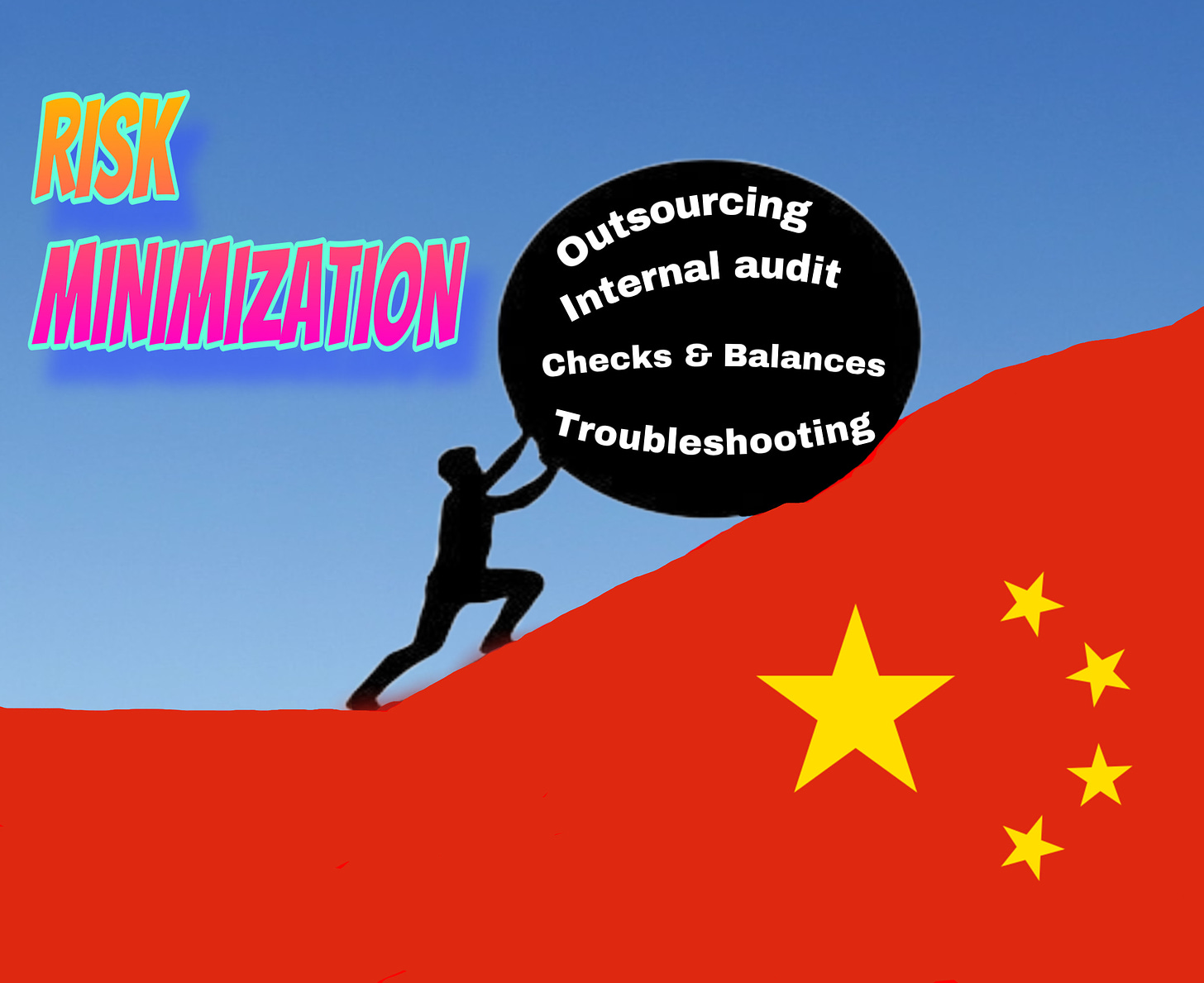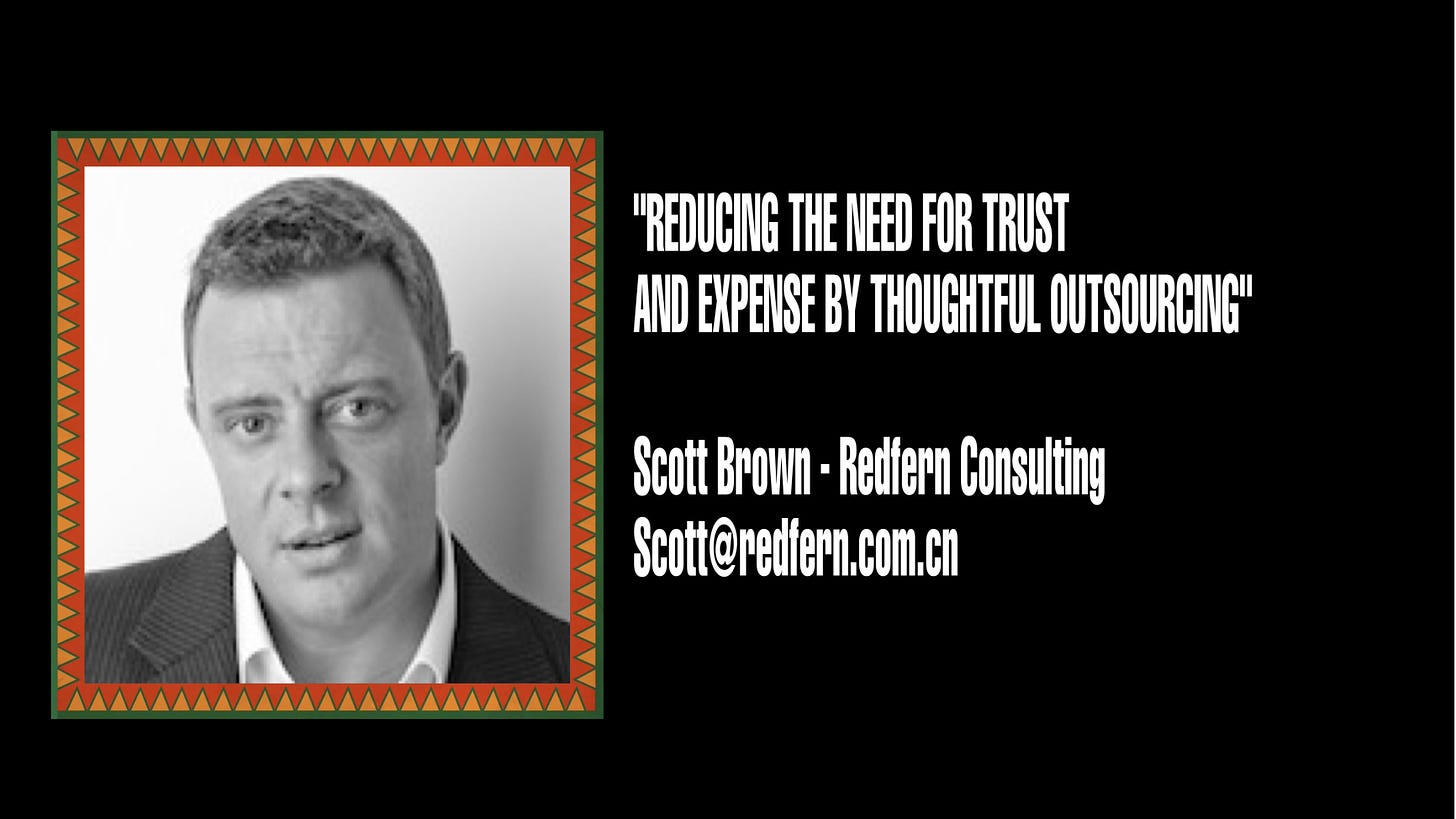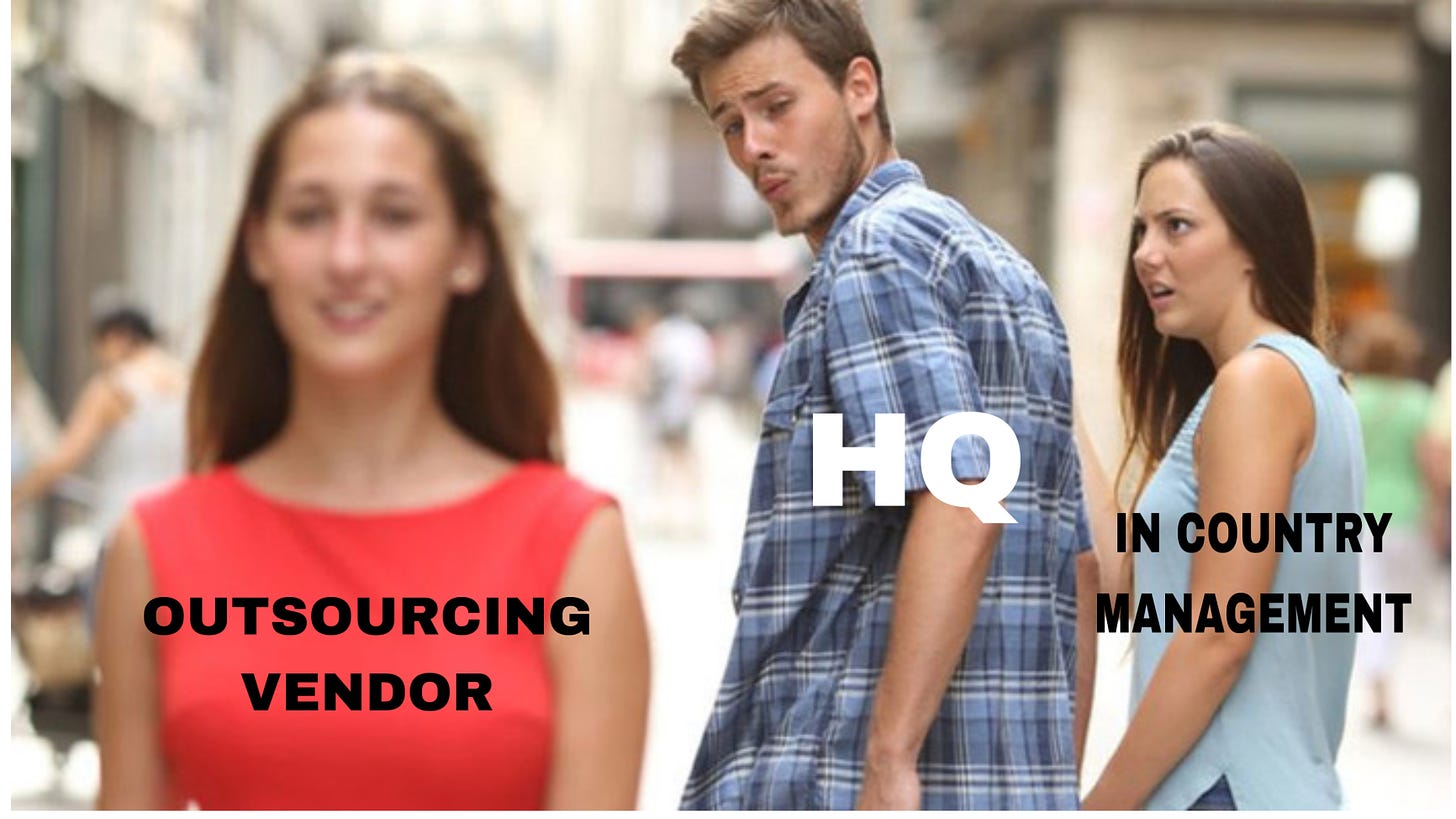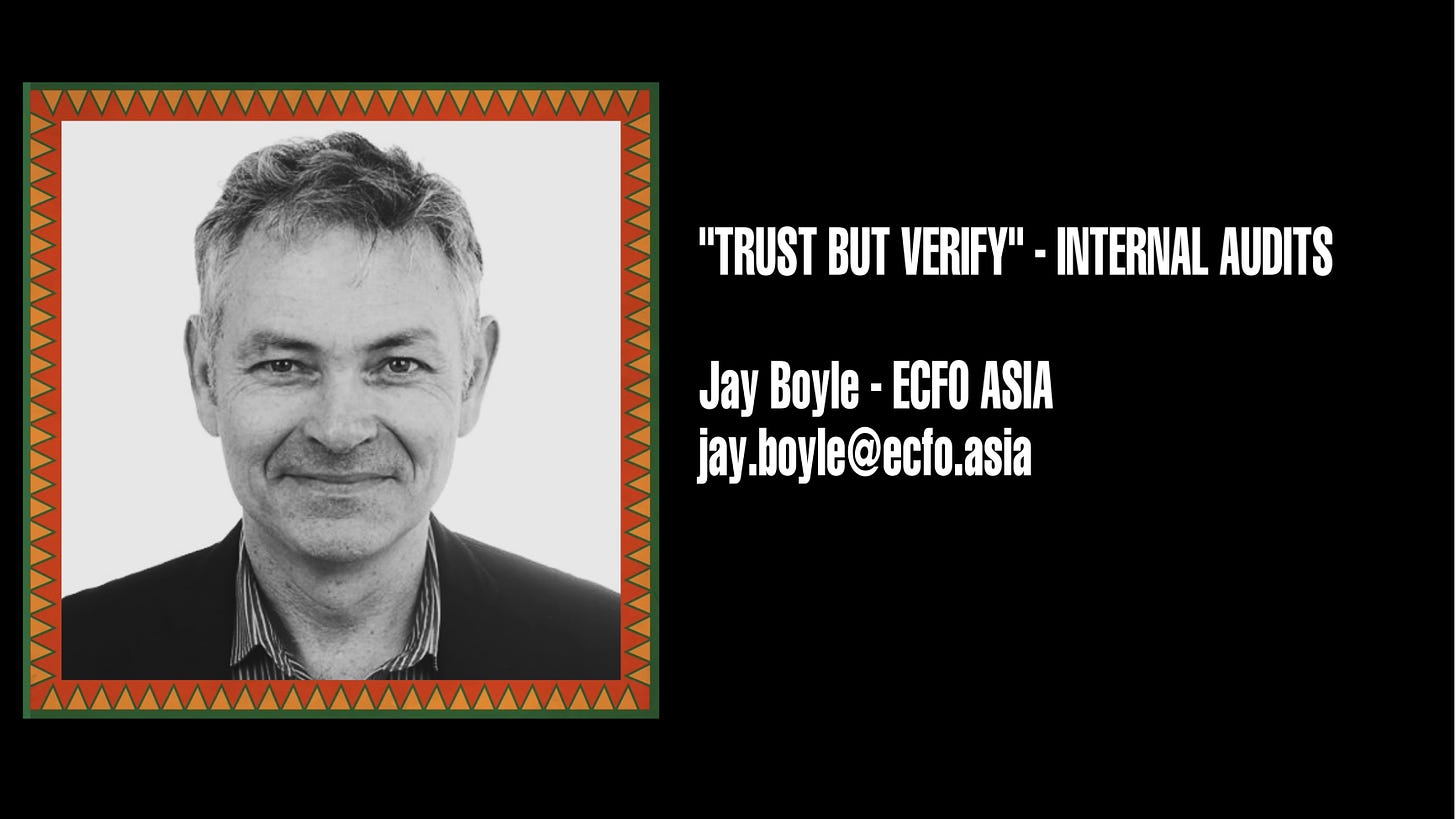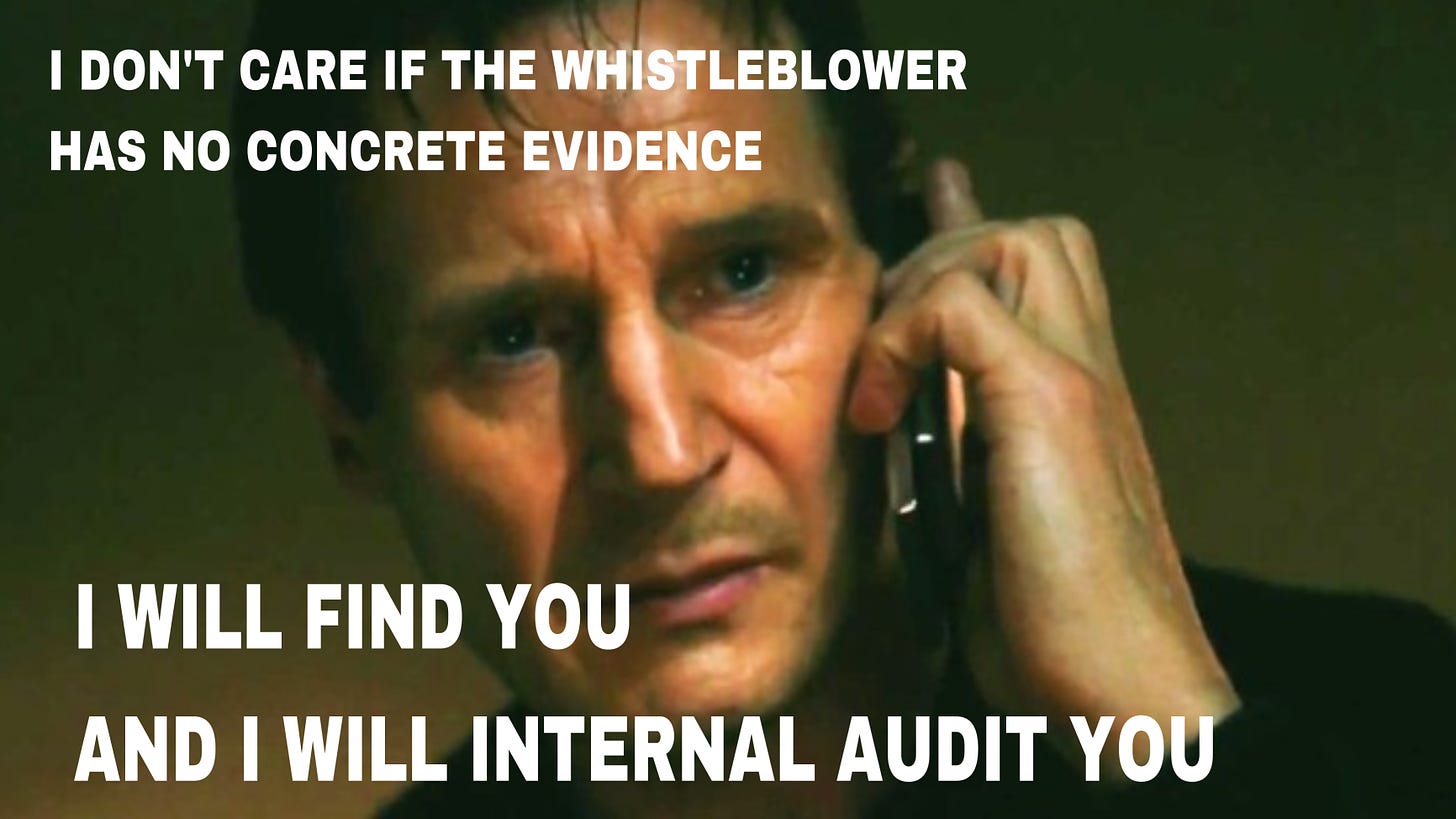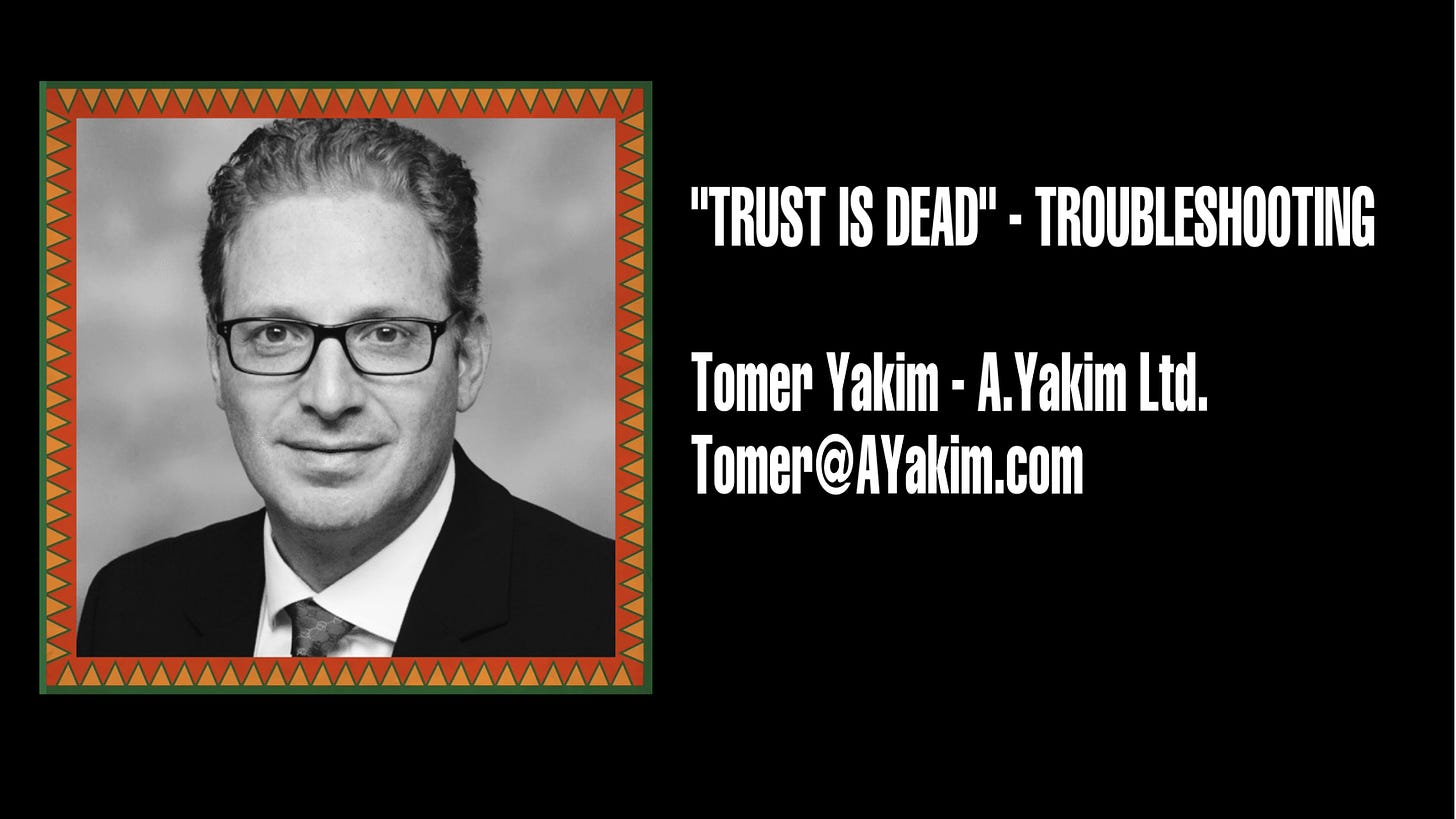Please note all content is personal opinion only. This does not reflect the opinion of my employer or indeed anyone else. Indeed, it may not even reflect my opinion later today.
We have been discussing international business dilemma in dealing with China – do I cede more decision-making power to our in-country management so they can be active or do we hold back decision making power because … we are scared of what might happen if local management is too active.
This has long been an issue for international business, but COVID has exacerbated matters. Less visits means less oversight and more misbehaviour.
In this issue I have asked some experts to provide their insights as to how international business can better manage their China in-country management risk.
“In the Post-Covid world outsourcing of important responsibilities and compliance in China is increasingly important.
For China the days of welcoming a foreign appointee as the China resident boss and establishing an organization on the mainland with little or no China experience are history. The market has localized, as have the decision makers, even amongst the MNC's. Expatriates are not as welcome as they once were but their business is … so a new model has emerged – your business should come but you don't need to come yourself.
There is a new commercial model where international companies can successfully operate in the China market via trusted partners who have serious local knowledge, expertise and networks rather than setting up a new foreign subsidiary which requires learning the hard way and the enviable mistakes that this entails. This is often very costly. Or setup up a legal entity and infrastruture that can be run on your behalf by a competent professional services firm for internal control and allows a multi-channel, multi partner or distributor model which you control. People and business travel will continue to be difficult for some time still. So are you going to hire via zoom? Let alone are you going to hire a CFO whom you have never met but who will hold your company chops authorizations and bank keys. Basically he/she will hold your money.
Outsourcing corporate and financial services in China has been common for many years. Only the largest and most established companies in China can justify the expense of an in-house accounting team with senior management to supervise their operations. Most medium sized international companies outsource functions because:
Reduce Risk by Controlling the Chops - In China, a legal entity requires a legal representative who is often based overseas but still legally responsible in the eyes of the Chinese authorities. In addition, there are a series of stamps or "chops" (i.e. company chop, finance chop, contract chop, personal chop etc.) which means he who physically holds the chops is king. The chop can legally oblige the company under agreements, loans and release company funds. I strongly recommend that the chops be kept in a secure safe and only used upon written authorization by the legal representative. The minor inconvenience greatly reduces the chance of serious wrongdoing.
Third Party Accounting Gives a True Picture - The Chinese government requires companies to submit a monthly set of accounts, P&L and Balance Sheet. In reality, Chinese statutory accounting is cash based and tax calculations based upon VAT. This doesn't help much with your visible management reporting but is a legal requirement. The filing of these and the subsequent conversations and relationship with the local district tax authorities are very important to enable any global CFO sleep soundly at night.
What does it Cost? To hire an internal team even for the smallest of businesses you will need a duly qualified accountant or financial controller to file submissions with the authorities. This person will generally cost a minimum of RMB20-50k per month. But no one person can do the whole job. A qualified accountant will be above doing menial cashier and bookkeeping work. A decent junior cashier will cost RMB8-15k per month. On the other hand, a reputable accounting firm would charge RMB15-30K per month including banking and invoicing. For this reason, the economic case stacks up but more importantly you can reduce your management time, ease your compliance concerns and compensate for any lack of knowledge gaps. This will means you can sleep better at night.”
“Mark recently mentioned the “ugly” in his recent post.
One ugly thing that often happens is when the home office receives an anonymous tip from an employee signaling that all is not well in China. Often this is a disgruntled employee that is trying to stir up trouble, but it can also signal financial or legal problems in the company. Either way it is a red flag and should be taken seriously.
Other times, the home office may find a Chinese product on the market in the US or Europe that is the exact design and quality but for a price that is lower than their wholesale cost.
A review of financial controls or a zero-based budgeting exercise can also shine some much-needed light into the ugly dark corners that are sometimes out there. We prefer to use a digital twin for the budgeting exercise. A digital twin allows the practioner to build a "should cost" model of the products produced. Once built we can add beginning balances from trial balance and recast the model from previous accounting periods. Variances in the actual vs modeled accounts show an internal audit team what accounts to audit for bucketing errors as well as to high light accounts for further scrutiny.
Any of the above can trigger an internal audit. The home office must quickly decide do they want to replace the entire management team and go after any fraud should it exist through any and all legal means? Or should they focus on stopping the bleeding and finding ways to force out the bad actors. If after a legal review and other naval gazing, the quieter more subtle approach is decided, then a review and tightening of internal controls is the ECFO preferred approach.
There are many ways a company can be defrauded. Most common methods are not outright theft of cash but will show up as increased scrap rates, (scrap is sold for cash) repurposed assets, shadow businesses, inventory shrinkage, fake employees and material cost variances. In the west it is common to spend a lot of time analyzing data bases looking for this. However, dirty data is the norm and not the exception and a zero based budget will highlight possible fraud and data errors while preventing your team from getting lost in the weeds.
Even if the head office believes there is a benefit to pursue a full-blown internal or even a forensic audit, an arm’s length zero based budget and thorough review of internal controls will tend to force the fraudsters to look for greener pastures.”
“Although China offers businesses both opportunities and risks … and the risks are increasing every year. We have been involved in many complicated cases where international companies face severe financial and/or strategic exposure due to their China operations. This can be a large-scale fraud perpetrated by local management, PRC suppliers, PRC customers or due to a dispute with local Chinese partners to name a few. The causes are diverse and each case is unique but the goals of the international company are normally the same – how to limit exposure? How to minimize the loss? How to recover our losses? How to change the business going forward?
International companies operating in China need to be aware how important high-level independent and objective oversight over their local operations is but also the need to react quickly to a disadvantageous situation. COVID has made it all more difficult – travel restrictions means the corporate ability to impose effective control or even closely monitor local operations has been seriously impaired. This has led to increased dependency upon local management. As a result, sophisticated fraud schemes by internal actors within the organization or local opportunistic partners are on the rise.
Once faced with a fraud, the first task is to learn and understand its full scale and potential exposures from all angles. It is important to get an x-ray picture that cover all relevant angles. A fraud case can quickly turn from a mere financial loss to a strategic exposure that can be damaging for the whole organization. If an international company detects that a local CEO is at the center of a major fraud the simple answer is that he should be fired on the spot. However, his position within the local operations will need to be considered in detail. How to deal with the influence he has over employees, suppliers and even competitors. If fired on the spot then he may immediately take with him key personnel and move to a competitor with all customers, trade secrets etc. In such case the international company may be left with a husk of a local operation. This will be a greater strategic loss than the direct loss arising from the actual fraud.
In the absence of on the ground corporate oversight the local management hold the chop of the company and thereby control the entity. In addition, many of the daily administrative and procedural legal matters (e.g. trademarks, contracts, e-commerce etc.) can be used by local management to leverage their position. In some cases, trying to take the rogue management out of the company may result in the rogues causing the company to go out of business in China. In one case, fraud by a local CEO triggered a FCPA investigation. In this way the China CEO was able to pose a threat to the whole organization and a mitigation plan was immediately needed.
Therefore, assistance of professional advisors that know how to handle volatile situations in an uncertain environment are crucial. Victims of fraud must first establish a clear picture of the overall situation, understand the full exposures and plan in detail and in advance how to meet the challenge. There is no textbook to deal with these situations. Each case is different and needs bespoke attention and planning. This is especially as the situations tend to be dynamic and ever developing. These situations need to be dealt with in a centralized manner - free from inner-politics and interference by self-interested stakeholders. The team solving the problem needs full authority delegated by the C-suite. This is especially important when the case is large and multi-jurisdictional. While a crisis is usually considered negatively it can also create an opportunity. In many cases a crisis brings with it an opportunity to undergo a thorough "house cleaning" and build of new infrastructure to allow the business to have healthy growth for the long run.
Reflections on the above
Taking a step back I think international companies considering how to deal with their China in-country management may wish to follow:
· Find a good General Manager/management team. Nurture the right people and allow them to be imbibed with the corporate DNA.
· Ensure that head office is closely intertwined in its China operations.
· Running a China operation successfully is not and should not be a one-person job. Make sure that the General Manager/management team are given adequate support to ensure the China operations run properly. This will include having good access to useful external consultants.
· Trust but Verify – even if you do have the right general manager do not allow the company to be a fiefdom. HQ must retain oversight and have various sources of information – (i.e. avoid relying solely on the general manager). In this regard, external reporting can be more reliable.
· Be Realistic as to What You Can Do - not all companies have experience in managing overseas operations. An advantage for multinationals in China is their depth of management. Medium-sized companies will often need external support for China – such third-party support is not only cost effective but much safer. Typically, companies starting out in China will outsource the financial reporting, chop custody and HR elements of the China operations to a disinterested yet reliable vendor.
· Build a system of checks and balances – many problems result from concentrating power in the hands of one individual – build in checks and balances.
· Internal audits can be a powerful risk minimization tool – not every anonymous whistleblower is legitimate, but HQ does need to take measures to check. Even if the anonymous whistleblower appears to be more motivated than revenge than moral outrage it is important to have effective internal financial controls in place.
· When a crisis strikes you need to 1) quickly understand the overall situation and potential ramifications (these may ripple beyond China); 2) after potential risks assessed a plan is needed to set strategic goals and implementation plan to meet them; and 3) act quickly and resolutely. In a China crisis the international company often starts strong with what it considers to be a decisive course of action. Unfortunately, the best rapid plans are often naïve, lacking in nuance and rely on third parties (i.e. courts, arbitration bodies, authorities etc.) to take action – these third parties rarely have the same level of urgency as the claimant – and this leads to action plans bogging down with no forward momentum. You need experienced and nuanced advice in a China crisis – not the straightforward, obvious advice.
Next Issue: Shanghai Lockdown/London Return Recap
I have just arrived back in London from Shanghai and am adjusting to jet lag, hay fever and stress at seeing a lack of masks. China has 151 COVID cases a day whereas England alone has 1.1 million people infected.
What was the vibe in Shanghai specifically and China more generally? What did people expect from the rest of the year? How long will dynamic COVID Zero remain in place?
If you prefer a real life exchange and you are in London on 12 July why not come along to our roundtable on Covid Zero – register at: https://www.eventbrite.com/e/370959629237/
See you next week,




